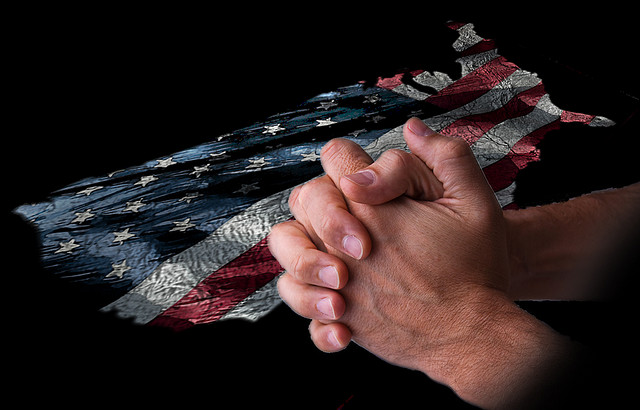
Supreme Court: Prayer Allowed in Government Meetings
“Prayer [in town meetings] has a permissible ceremonial purpose. It is not an unconstitutional establishment of religion,” said Justice Anthony Kennedy on May 5, 2014, in the majority opinion of Greece, NY v. Galloway, et al.
Justice Elena Kagan in her dissenting opinion argued that sectarian prayer to a god of a specific religion left some offended and feeling excluded.
Justice Kennedy said constitutionality has nothing to do with citizens taking offense: “Adults often encounter speech they find disagreeable. Legislative bodies do not engage in impermissible coercion merely by exposing constituents to prayer they would rather not hear and in which they need not participate.”
Justice Kagan said that she did not believe prayer should be banned altogether, but that payers should be “inclusive of different faiths, rather than always identified with a single religion.”
Justice Kagan’s dissent stated that the town of Greece’s prayers from the chaplain of the month, who was usually Christian, were not in keeping “with the First Amendment’s promise that every citizen, irrespective of her religion, owns an equal share in her government.”
Justice Kennedy’s majority opinion stated that Justice Kagan’s restrictions would force the government to “act as supervisors and censors of religious speech, a rule that would involve government in religious matters to a far greater degree than is the case under the town’s current practice of neither editing or approving prayers in advance nor criticizing their content after the fact.”
Justice Kennedy’s majority opinion was joined in whole by Chief Justice John G. Roberts Jr. and Justice Samuel A. Alito Jr. and joined in part by Justices Antonin Scalia and Clarence Thomas.
Justice Kagan’s dissent was joined by Justices Ruth Bader Ginsburg, Stephen G. Breyer, and Sonia Sotomayor.
Read more about the decision here or read the opinions here.
Photo credit Harley Pebley.

